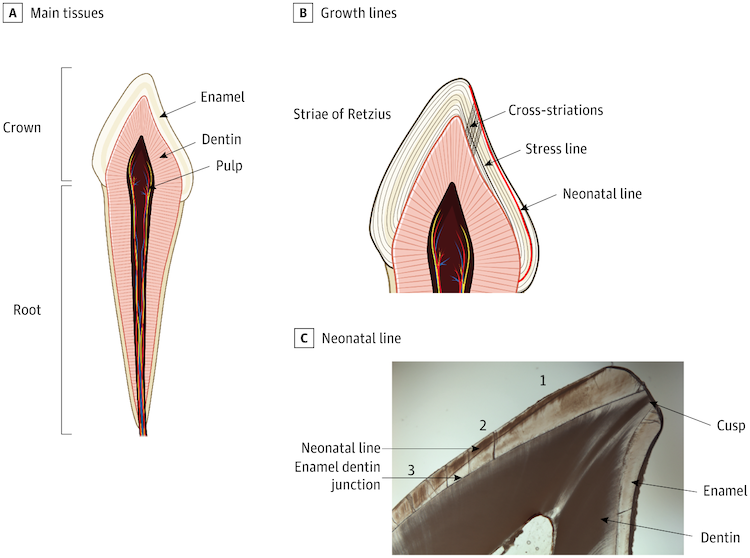As a baby’s teeth begin to form in utero, they create growth lines that can vary in thickness depending on the mother’s wellbeing during pregnancy. One of these growth marks, called the neonatal line, is known to be thicker in children whose mothers experience poor nutrition, disease, and other types of physical stress, such as a complicated labor or preterm birth. Since teeth keep a record of physical health, some scientists hypothesized that teeth could reveal clues about mental health as well.
In a paper published last month in the journal Psychiatry, researchers describe their findings from a study of 70 shed primary teeth. The results show that babies whose mothers experienced stressful life events and mental health challenges during pregnancy developed thicker neonatal lines in their teeth than babies of mothers without those stressors. Babies whose mothers received social support during pregnancy had thinner neonatal lines.

Previous research has shown that childhood exposure to early-life adversity is associated with increased risk of developing mental health disorders later in life. This new study suggests that the neonatal line in teeth could be a useful biomarker for uncovering signs of early-life stress, and potentially predicting risk for future mental health issues.
“Teeth have been used for decades as records of environmental exposures to toxicants, such as metals. This study suggests that teeth can also be indicators of exposures to maternal stress,” says Dr. Felicitas Bidlack, Associate Member of Staff at The Forsyth Institute and co-author of the study. “We know that shed teeth encapsulate a record of prenatal and early childhood experiences and provide a non-invasive biomarker with amazing time resolution. Our goal is to leverage this record to recognize children at risk early on.”
Researchers from The Forsyth Institute, Massachusetts General Hospital, and Harvard University collaborated on the research.
Read the full study here.
Make a gift to support research at Forsyth.
